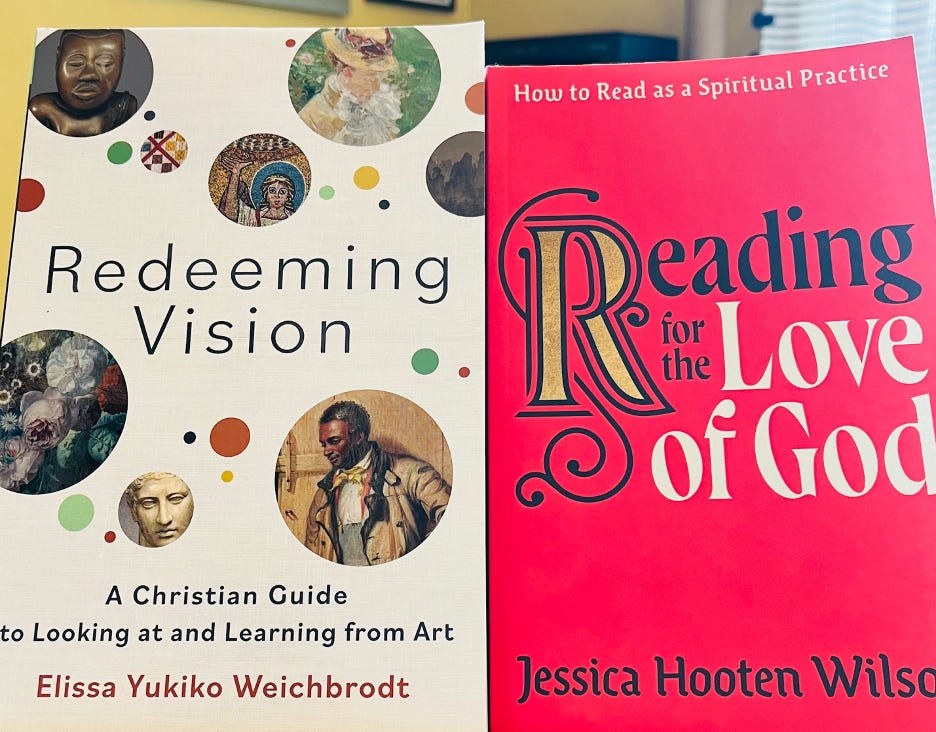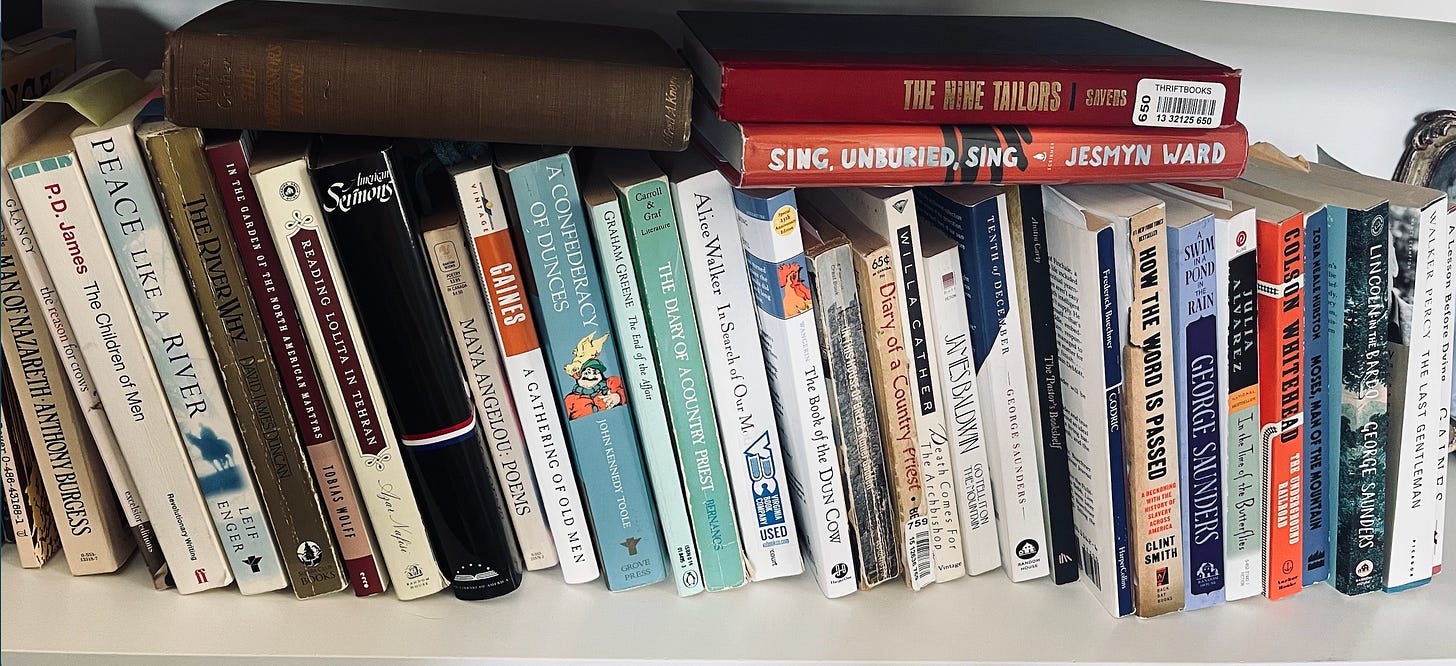How would you spend your ideal day?
If you’ve read C.S. Lewis’s Surprised by Joy, he describes an ideal day from his youth. He would breakfast at 8am, be at his desk by 9am and read or write until 1pm. He adds, “If a cup of good tea or coffee could be brought me about eleven, so much the better.” Then, he would step out of doors for a pint, meet a friend, lunch, and go walking. He would take tea in solitude, observing “Eating and reading are two pleasures that combine admirably. Of course not all books are suitable for mealtime reading. It would be a kind of blasphemy to read poetry at table. What one wants is a gossipy, formless book which can be opened anywhere.” What Charlotte Mason would call “twaddle.” These are not the main course in a reader’s diet, but merely the icing or occasional biscuits. Of course, check out Lewis’s list of light reading:
“Boswell, and a translation of Herodotus, and Lang’s History of English Literature. Tristram Shandy, Elia and The Anatomy of Melancholy are all good for the same purpose.”
For my easy-reads, I’d gravitate towards Agatha Christie, Dorothy L. Sayers, NY Times bestsellers, or books I’ve read a dozen times like Lord of the Rings (which only counts as a light read after many previous reads).
Lewis continues that he would work again (meaning reading or writing) from five to seven. Then, after dinner, talking or lighter reading or “making a night of it with your cronies.” Ideally, “it is essential of the happy life that a man would have almost no mail and never dread the postman’s knock.” We might say the same now of a day without email.
Granted, Lewis’s day could only be accomplished by a bachelor or a monk. How might a mother of three ever have such a day without going on retreat? You also might notice that Lewis—in his ideal day—does not include reading the news.
Rip Van Winkle Experiment
A dozen years ago, the writer Albert Haley tried an experiment: he decided to give up attending to the news for an entire year. Like Rip Van Winkle who accidentally went to sleep for a couple of decades, Haley wanted to see what would it matter if he did not heed the impermanent goings on of the world for 365 days. I don’t recall his discoveries, only the experiment itself.
If you read Washington Irving’s story, the narrator observes that Rip Van Winkle used to frequent the local pub (called “His Majesty George the Third” before his twenty-year sleep and called “General Washington” after), where the local “sages, philosophers, and other idle personages of the village” would sit for hours “talking listlessly over village gossip, or telling endless, sleepy stories about nothin” or, when “by chance an old newspaper fell into their hands from some passing traveller,” the colonists would spend hours opining on events that occurred months prior.
When I compare Van Winkle’s “long, lazy summer’s day” to Lewis’s ideal day, I’d prefer the latter. It seems to me that Rip was not missed for two decades because his talking was frivolous and regarded things that didn’t matter twenty years later. However, we cannot say that Lewis’s hours of reading (which some may chide as seeming wasteful) did not bear immense fruit.
As we enjoy the leisure of summer, we should consider filling our days with permanent goods rather than with trivial pleasures.
May Publications
Defense of Restoring Women and Writers of Color to the Great Books Canon
Conversation with Elissa Yukiko Weichbrodt on redemptive art and reading
“To Labour is To Love”—how Dorothy L. Sayers’s “Why Work?” reminds us of first things first
Reviews of Reading for the Love of God
What I Read in May
In addition to reading Weichbrodt’s book Redeeming Vision, I have been working through a handful of biographies on Sayers, Edith Stein, Anna Julia Cooper. I’m taking my time with a couple of books on the Bible: Scott McKnight’s Revelation for the Rest of Us and Dominick Hernández’s Engaging the Old Testament. But, as I await the arrival of baby number four, audiobooks have been best, especially the dramatisations, such as the Lord Peter Wimsey series by BBC.
Here’s a random shelf in my library that might offer some great recommendations for your summer reading. Enjoy your summer leisure!
“The saints were all people of imagination, not functionaries of apparatuses. Outwardly, they were perhaps ‘unusual’ personalities, but nevertheless, they were profoundly obedient, and, at the same time, persons of great originality and personal independence. And the Church, I shall never tire of repeating it, needs saints more than functionaries.” —Benedict XVI






On that bookshelf... I recognize many of those books from my Close Reads podcast group! Nice bunch of books there.
Lewis' day sounds pretty great to me! Of course, I would add a cigar or two in the mix.